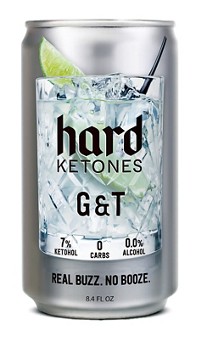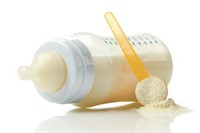Advertisement
Grab your lab coat. Let's get started
Welcome!
Welcome!
Create an account below to get 6 C&EN articles per month, receive newsletters and more - all free.
It seems this is your first time logging in online. Please enter the following information to continue.
As an ACS member you automatically get access to this site. All we need is few more details to create your reading experience.
Not you? Sign in with a different account.
Not you? Sign in with a different account.
ERROR 1
ERROR 1
ERROR 2
ERROR 2
ERROR 2
ERROR 2
ERROR 2
Password and Confirm password must match.
If you have an ACS member number, please enter it here so we can link this account to your membership. (optional)
ERROR 2
ACS values your privacy. By submitting your information, you are gaining access to C&EN and subscribing to our weekly newsletter. We use the information you provide to make your reading experience better, and we will never sell your data to third party members.
Business
Supplemental Science
Chemical firms that make dietary nutrients are investing in research and better formulations to win over customers and skeptics
by Melody M. Bomgardner
April 21, 2014
| A version of this story appeared in
Volume 92, Issue 16
A meta-analysis of health studies concluded last month that saturated fat consumption is not linked to a higher incidence of adverse coronary events, such as heart attacks and strokes—a finding contrary to most dietary guidelines published since the 1960s.
When the surprising news hit the media, it was hailed by meat lovers and pilloried by many nutrition experts. But the news stories omitted another key finding: The omega-3 fatty acids found in fish reduce the risk of adverse coronary incidents in the general population (Ann. Intern. Med. 2014, DOI: 10.7326/m13-1788). That detail is positive news for fish eaters. It could also signal good fortune for some big players in the chemical industry.
Following a wave of acquisitions of smaller specialist companies, chemical firms such as BASF, FMC, DSM, and Lonza have become the major providers of omega-3 fatty acids extracted from fish and algae and sold in bulk. The fatty acids, which are put into supplements and fortified foods, are just one area of investment in human nutrition by the chemical industry. They join a diverse list of active ingredients—including vitamins, plant sterols, and probiotics—now produced by chemical firms.
Dietary supplements have a huge user base. In the U.S., roughly half of adults report that they take at least one supplement regularly, commonly a multivitamin. Chemical company executives point to trends such as the increased desire for health and wellness, the aging of the population in developed countries, and the increased interest in fitness as solid reasons to invest in ingredients for nutritional supplements.
But one reason they can’t point to is broad scientific consensus that nutritional supplements improve human health. Critics of supplements point out that there is no evidence the supplements prevent death from heart disease, cancer, stroke, or other chronic health conditions.
Scientists at chemical companies say they are committed to working with principal investigators on better-designed and -funded studies of nutritional supplements that will stand up to wider scientific scrutiny. They are gathering evidence about short-term benefits such as strengthened immune response and delayed cognitive decline. And in the longer term, they hope to tackle the bigger challenge: proving that supplements reduce the risk of cancer, cardiovascular diseases, and even Alzheimer’s disease. Only then will they be able to claim that supplements can promise healthier lives and healthier aging.
“The realization that we can influence overall health through nutrition—like adding omega-3s and vitamin E into our daily diets—throughout all stages of life, is crucial,” says Laura King, marketing manager for DSM Nutritional Products. “It’s especially important as 78 million baby boomers in the U.S. move into the second half of their lives.”
In addition to being able to add heft to the science, chemical firms are well positioned to add value to supplements with other measurements of quality, such as purity, Good Manufacturing Practices, high-tech processing, and source traceability.
A reputation for quality has helped the chemical industry attract customers—the formulators and marketers of brand-name supplements—and given it a strong foothold supplying a global retail business worth approximately $67 billion per year, according to Christopher Shanahan, industry manager at market research firm Frost & Sullivan.
In addition to the popular omega-3 components docosahexaenoic acid (DHA) and eicosapentaenoic acid (EPA), chemical firms offer a variety of other nutrients. BASF and DSM sell an alphabet soup of traditional vitamins from A to K-2. BASF, FMC, and DuPont offer plant phytosterols, which inhibit absorption of cholesterol. DuPont’s 2011 acquisition of Danisco instantly made it a leading producer of probiotic bacterial strains that can promote gut health.
A leading producer of vitamin B-3, Lonza has also invested in less-well-known nutrients that are claimed to benefit metabolism, cognitive function, and immune support. Similarly, DSM has gathered a line of nutraceuticals including resveratrol, plant isoflavones, and coenzyme Q10.
The two most important factors driving growth in demand for these supplements are “strong science and aggressive marketing to increase consumers’ awareness of health benefits,” Shanahan reports.
Science and marketing reinforce each other in the claims that the Food & Drug Administration allows supplement brands to make. One type is structure-function claims, which can be based on mechanistic studies about how nutrients are used by the body for healthy metabolic function. Example claims include “Antioxidants maintain cell integrity,” “B vitamins help convert food to energy,” and “Probiotics support digestive health and immune system function.”
Claims that a nutrient can reduce the risk of a disease or alleviate a health condition require a higher level of evidence, generally based on randomized clinical trials. Because several studies of phytosterol supplements met that bar, for example, FDA allows a bottle to carry the claim “May reduce the risk of heart disease.” Likewise, omega-3 supplements can carry the statement “Supportive but not conclusive research shows that consumption of EPA and DHA omega-3 fatty acids may reduce the risk of coronary heart disease.”
Although FDA allows health claims for certain nutritional supplements, many medical professionals are not convinced about the benefits of supplements for the general population. Last year, the Annals of Internal Medicine published three large studies of the impact of single- and multivitamin supplements on mortality, cardiovascular disease, cancer, cognitive decline, and recurrent cardiovascular events. None returned evidence of health benefits.
The journal also published an editorial by Eliseo Guallar of Johns Hopkins Bloomberg School of Public Health and coauthors summarizing the studies’ findings. “Evidence is sufficient to advise against routine supplementation,” they wrote, “and we should translate null and negative findings into action. The message is simple: Most supplements do not prevent chronic disease or death, their use is not justified, and they should be avoided” (Ann. Intern. Med. 2013, DOI: 10.7326/0003-4819-159-12-201312170-00011).
The study of nutritional supplements can have many blind alleys. Because people who take supplements are proactive about their health in general, it’s inherently misleading to make observational studies that compare the health of supplement users to nonusers.
Instead, explains registered dietitian Katherine Basbaum, who works with cardiology patients at the University of Virgina’s health sciences department, clinicians follow what’s known as evidence-based dietetics practice, which requires the use of systematically reviewed scientific evidence in decision making. All studies are not created equal, and many nutrient studies have yet to be substantiated with similar research and results, she says.

But randomized, controlled human clinical trials, the gold standard for pharmaceuticals, are also beset with problems when nutrients are the study object, argues Jeffrey B. Blumberg, director of the Antioxidants Research Laboratory at Tufts University.
He points out that most large clinical trials of nutritional supplements are done with healthier-than-average people, such as doctors or nurses. Researchers don’t test participants’ baseline blood levels or biomarkers of nutrients prior to supplementation. Unlike in pharmaceutical studies, the control group is also getting some amount of the nutrient in question just from eating. Finally, supplementing healthy people for years or decades and measuring who develops heart disease or cancer would cost billions of dollars. Even a huge-selling supplement would not justify that level of spending.
In contrast, people with serious nutritional deficiencies and some health conditions do benefit from nutritional supplements, UVA’s Basbaum notes. Supplements can help address deficiencies in people who are malnourished as a result of low appetite; who don’t absorb vitamins well from their diet or have pancreatic, liver, or kidney disease; who suffer from alcoholism; or who have had gastric bypass.
Patients who have had a heart attack or suffer from coronary artery disease have been shown in several studies to benefit from omega-3 and phytosterol supplements. Those with abnormally high blood levels of triglycerides may be prescribed a pharmaceutical-grade omega-3 supplement called Lovaza.
Supplement makers stress that most people in the U.S. don’t get FDA-recommended nutrient levels through diet, mostly because they don’t eat nearly enough fruits, vegetables, and fish. Data from the National Institutes of Health show that more than 80% of Americans more than four years old do not consume enough vitamins D and E. More than one-third fall short on calcium and vitamins A and C. Other essential nutrients, such as omega-3 and selenium, are likely also lacking but there are no government-recommended dietary intake levels.
Routine deficiencies of essential nutrients prevent the body from functioning optimally and may be reason enough to take supplements, even though deficiency diseases such as scurvy or pellagra are extremely rare these days, Tufts’s Blumberg suggests.
But ingredient makers believe they can do better than help stave off nutrient deficiencies. FMC, which acquired the Norwegian omega-3 firm Epax last summer, is looking at how it can design a study looking at the impact of supplementation on healthy people, says Blaik P. Halling, associate fellow for FMC’s nutraceuticals business. The challenge is to prove in what way the supplement group stays healthy compared with a control group that takes a placebo.

Chemical firms are reaching out to investigators to devise smaller studies on their products, usually with fewer than 1,000 participants, that zero in on specific populations. They are initiating randomized placebo-controlled double-blind trials, the type most likely to be combined for the larger, meta studies that evidence-based medicine requires.
In a recent example, DSM collaborated with the Department of Veterans Affairs on a study that showed supplementation with α-tocopherol, a version of the antioxidant vitamin E, slowed the rate of progression of Alzheimer’s disease by 6.2 months compared with a placebo. The vitamin E group had a better outcome than a group taking the Alzheimer’s drug memantine (JAMA Intern. Med. 2013, DOI: 10.1001/jamainternmed.2013.2299 ).
In October, DuPont publicized a study that it claimed demonstrates immune-health benefits of a strain of the probiotic Bifidobacterium animalis in healthy, active adults. The trial showed the probiotic reduced the risk of upper respiratory tract illness by 27% in the five-month study period. Another study showed that a different strain of the bacteria increased the activity of phagocytic immune cells in elderly people.
Studies that go beyond the basic requirements for structure-function claims can help ingredient makers differentiate their offerings, according to Mike DeGennaro, vice president of Lonza’s consumer care business in North America.
In 2006, Lonza bought a producer of arabinogalactan, a product derived from larch trees. At the time, studies of the biopolymer suggested it may provide immune support, but Lonza wanted stronger evidence. “We spent three or four years on gold-standard clinical trials,” DeGennaro says. The results convinced Lonza’s experts and its customers that the product is effective.
FMC is investigating the immune properties of fucoidan, a polysaccharide that the firm collects in Norway as a by-product of alginate production from seaweed. The product may prime the immune system of older people to help make flu vaccines work better, says Daniel Rosenbaum, FMC’s business director for nutraceuticals. The firm has wrapped up preclinical mouse trials and hopes to start human trials this year.
In addition to building a track record of health benefits, chemical firms have increased the value of their ingredients through expert formulation, high-quality manufacturing standards, and strict management of the supply chain. To signify quality, they give trademarked names to the ingredients.
“More people are recognizing the value a big chemical company brings with branded ingredients,” says Duffy MacKay, senior vice president for science and regulatory affairs at the Council for Responsible Nutrition, a trade group for supplement makers. “Stability, consistency, and knowing your suppliers are things the industry is looking for.”
BASF makes a high-potency omega-3 that doesn’t cause the dreaded fish burp. “It gives our customers the ability to sell smaller capsules; our taste-masking expertise is a big advantage,” says Samy Jandali, vice president of BASF Nutrition & Health for North America. Purity, traceability, and even sustainability metrics are also important to customers, Jandali notes. For example, BASF can ensure that its products do not contain harmful levels of mercury, dioxins, and other contaminants that can be present in fatty fish.
Advertisement
At FMC, proprietary processing techniques can create omega-3 products with higher amounts of EPA for heart health or DHA for brain development in children. “The brand owners want a product aimed at a certain indication,” Rosenbaum says. FMC can trace its oil supply all the way to the source—small anchovy-like fish called anchoveta harvested off the coast of Peru.
DuPont helps makers of probiotic supplements create products for different indications, such as gut health or immune function, by offering multiple species and strains. “Health benefits can be strain dependent. We do our studies with a particular strain, including genomic sequencing. We want that to be communicated to medical professionals and consumers,” explains Scott Bush, global business leader for probiotics at DuPont Nutrition & Health.
Delivering live microbes requires expertise, Bush points out. To sell probiotics on the shelf of a major retailer—rather than in a refrigerated case—requires freeze-drying the bacteria and keeping the cultures dry. Making sure enough of the dose reaches the lower digestive tract calls for high-potency capsules with hundreds of billions of cells. DuPont’s strains are selected for good acid and bile tolerance, Bush says.
Combining active ingredients with in-house expertise in excipients—inactive drug ingredients—has helped chemical companies deliver higher-value formulations. DSM takes advantage of an encapsulation system it calls Actilease to protect active ingredients, make products shelf stable, and deliver the promised amount of the nutrient. FMC’s expertise in ingredients for foods and beverages helped it create a non-esterified phytosterol, derived from pine oil, to blend into beverage and dairy products.
FMC sees its charge as “not just providing an ingredient but making our customer able to focus on what they are good at—serving the consumer. Having the key ingredient is critical, but having solutions, especially a unique one, helps to really unlock the value for the customer,” FMC’s Halling says.
Looking ahead, chemical firms operating in the dietary nutrients industry cannot stand still if they want to see growth continue, Frost & Sullivan’s Shanahan warns. They will need to keep up the investments in research, communicate the benefits of products to consumers, and perhaps someday win over clinicians.
DuPont’s Bush is optimistic about the future, particularly for probiotics. “I think the growth we are seeing is not going to drop off,” he says, “because we’re doing great science.”







Join the conversation
Contact the reporter
Submit a Letter to the Editor for publication
Engage with us on Twitter